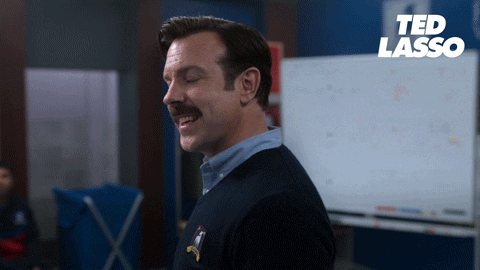- Acronym
- Posts
- EOD: Finding purpose in the age of AI
EOD: Finding purpose in the age of AI
Take the holiday season survey at the end!
We hear over and over about how jobs will evolve—maybe even die off—because of AI’s capabilities. Anthropic CEO Dario Amodei estimates AI could wipe out half of all entry-level white-collar jobs and spike unemployment to up to 20% in the next half a decade. But forget jobs for a second. What about our purpose?
I don’t know about you, but work itself is not what gives me purpose. So what does? My craft of writing as a means to share important information and perspectives with the world in (hopefully) an enjoyable way, my skills with dogs (whom I volunteer with) and time spent with loved ones. I’m sure your purpose is similar, though unique to your skills and interests.
If (maybe when) the shape of the job market significantly changes, it could lead to a kind of “spiritual atrophy” and even “political disintegration,” Senator Chris Murphy (D-Conn.) said at a Brookings Institution event in late September.
Business news doesn’t have to be boring
Morning Brew makes business news way more enjoyable—and way easier to understand. The free newsletter breaks down the latest in business, tech, and finance with smart insights, bold takes, and a tone that actually makes you want to keep reading.
No jargon, no drawn-out analysis, no snooze-fests. Just the stuff you need to know, delivered with a little personality.
Over 4 million people start their day with Morning Brew, and once you try it, you’ll see why.
Plus, it takes just 15 seconds to subscribe—so why not give it a shot?
Sen. Murphy argues that the amount of time we spend in communion with friends is already deeply trimmed compared to a generation ago, and that advanced AI is going to supersize this trend. My own reporting about chatbots leading to or worsening AI psychosis and suicidal ideation suggests this is already happening.
And while the benefits that AI brings are undeniable—earlier disease diagnosis in hospitals, workplace improvements for certain neurodiverse populations and so on—humans are concerned about what changes it might bring to the meaning of, well, being human.
More than the degradation of work, Murphy worries about social withdrawal and a person’s lack of involvement in community that could worsen with AI. From my vantage point, we don’t need the status quo of work culture to have a healthy society, but we’d need to make a helluva lot of changes to our governmental priorities to make that happen.
“It's really easy to talk about intimate, romantic relationships and sensationalize those,” said Molly Kinder, senior fellow at Brookings, at the event. But “a whole other disruption is happening from the outside in as we start to offload tasks to these tools instead of turning to each other.” Here, Kinder refers to self-help and personal queries, something that ChatGPT creator OpenAI says makes up the vast majority of messages from users.

Meanwhile, an Upwork study says that 64% of folks who actively use AI in their professional workflow say they have a better relationship with AI than their colleagues.
What does this say about us? Perhaps it says we’re really missing the mark on connecting with one another, and that AI is simply filling that gap. Perhaps it says we’ve overcorrected on healthy boundaries at the expense of community (“the cost of community is inconvenience,” as the modern saying goes).
Or perhaps it says we ought to be critical of AI while we fight to retain—or find for the very first time—our sense of humanity in an increasingly automated world. I can’t argue with Murphy when he says that “we shouldn't be so naive to believe the tech billionaires have our best interests at heart. People like Sam Altman are fundamentally disconnected from reality.”
As the federal government shutdown continues and our few critical social safety nets disintegrate (I’m writing this on Friday, Oct. 31, one day before SNAP is set to halt)—and as my home state of Pennsylvania’s months-long budget impasse begins to impact public schools by failing to give them the millions and millions of dollars they require to run—Americans are understandably more worried about survival than purpose.
But as the holiday season approaches, I can’t help but hope that each one of us finds purpose in small ways, whether it’s offline or enabled by AI that increasingly seems to be what keeps us moving in this hectic world.
What’s next for Acronym?
I’m going to be highlighting YOU, dear readers.
Email me directly or fill out this form telling me how you volunteer (year round or during the holidays) as a means for giving back, building community and making purpose.
Feel free to share a picture along with your response. Can’t wait to hear from y’all!
Thanks,




Reply